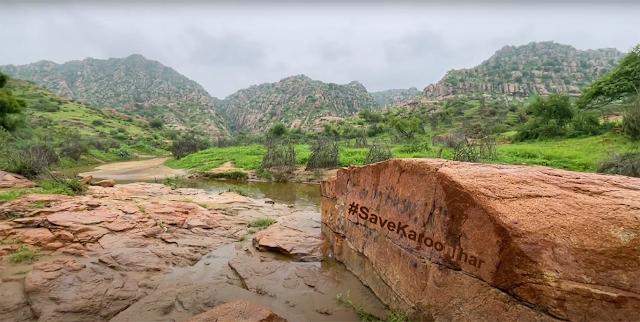The Sindhi people share a deep emotional bond with the Karoonjhar Mountains. These mountains symbolize the essence of their culture, heritage, and spiritual beliefs. The Karoonjhar, with its scenic beauty and serene atmosphere, evokes a sense of awe and admiration among the locals, who consider it a source of pride and identity.
The love for the Karoonjhar Mountains is not only rooted in its historical and cultural significance but also in its capacity to inspire and unite communities. For many Sindhi people, the mountains represent a place of introspection, spiritual connection, and a reminder of the ancient roots that have shaped their identity.
As the region faces modern challenges like industrialization and environmental threats, the love and affection of the Sindhi people for the Karoonjhar Mountains are driving them to stand united in efforts to protect and preserve this cherished heritage for future generations. The mountains continue to be a source of inspiration, reminding the Sindhi people of their rich history and cultural heritage, while also beckoning visitors from all walks of life to experience the timeless beauty and spiritual aura they exude.

The Karoonjhar Mountains, nestled in the heart of the Tharparkar district in Sindh, Pakistan, boast a rich and captivating history that spans thousands of years. Revered for their awe-inspiring beauty, cultural significance, and ecological importance, the Karoonjhar Mountains hold a special place in the hearts of locals and visitors alike.
Geological Formation:

These ancient mountains, also known as the Nagarparkar Range, were formed through a geological process millions of years ago. The range is part of the larger Aravalli Range, which extends from India to southern Pakistan. Composed predominantly of granite and other igneous rocks, the Karoonjhar Mountains showcase unique rock formations that have stood the test of time.
Cultural Heritage:
The history of the Karoonjhar Mountains intertwines with the rich cultural heritage of the region. These mountains have been the backdrop for countless tales, folklore, and legends passed down through generations. The local Thari community, with its vibrant traditions and customs, has fostered a deep spiritual connection to the mountains, considering them sacred and holding numerous religious ceremonies at various sites within the range.
Historical Significance:

Karoonjhar has witnessed the rise and fall of several ancient civilizations that thrived in the region. Archaeological evidence indicates that the area was once home to a flourishing Indus Valley Civilization settlement, dating back to around 3000 BCE. Ancient artifacts, pottery, and ruins discovered in and around the mountains provide valuable insights into the lives and cultures of these early inhabitants.
Spiritual and Pilgrimage Sites:
The Karoonjhar Mountains hold great spiritual importance for people of diverse faiths. It is believed that Jain saints and scholars sought solace and enlightenment in the tranquil surroundings of these mountains during ancient times. Consequently, several Jain temples were constructed here, some of which still stand as testimonies to the spiritual legacy of the region.
Additionally, Sufi saints and mystics also found inspiration amidst the serene beauty of the mountains. Over the centuries, numerous Sufi shrines were established, becoming sites of pilgrimage for devoted followers seeking spiritual enlightenment and blessings.
Ecological Diversity:
Beyond its cultural and historical significance, the Karoonjhar Mountains are ecologically vital to the region. The diverse flora and fauna that inhabit the mountains contribute to the delicate ecosystem of the Thar Desert. The region's unique climate and geology have given rise to a variety of plant and animal species that have adapted to the arid conditions, making it an area of ecological interest.
Challenges and Preservation Efforts:
In recent times, the Karoonjhar Mountains face the challenges of modern development and human activities. The proposed auctioning of granite mining leases has sparked concerns among locals and conservationists who fear the potential environmental impact and the destruction of the mountains' natural beauty.
However, there have been concerted efforts by local communities, activists, and political representatives to preserve the heritage and ecological importance of the Karoonjhar Mountains. Calls for recognition as a World Heritage Site aim to ensure the sustainable conservation of this precious landscape for future generations.
The Karoonjhar Mountains stand as a testament to the passage of time, holding within their rocky embrace a history that unfolds across millennia. As the wheels of progress turn, it is crucial to strike a balance between development and preservation, ensuring that the cultural, historical, and ecological legacy of the Karoonjhar Mountains endures for generations to come. By safeguarding this mesmerizing wonder, we can pay homage to the ancient civilizations that once thrived here and maintain the spiritual and cultural significance it holds for the people of Thar






